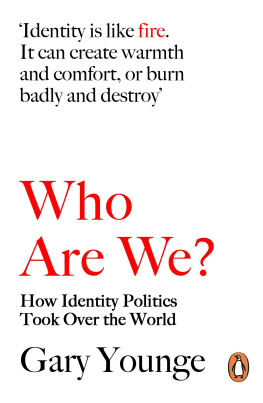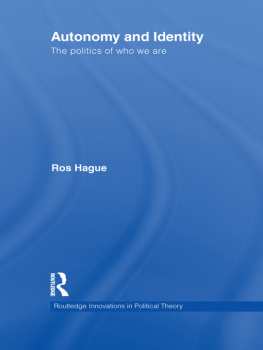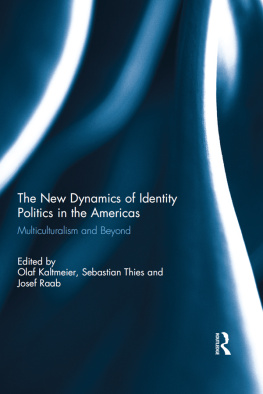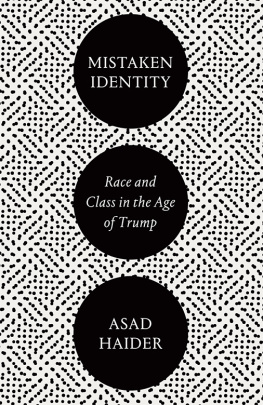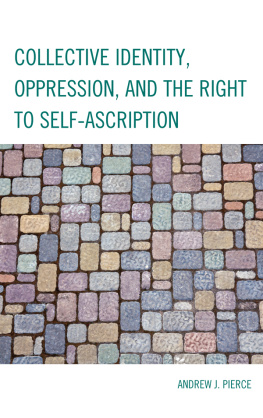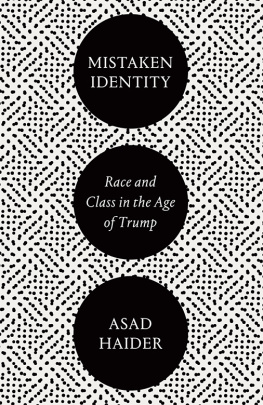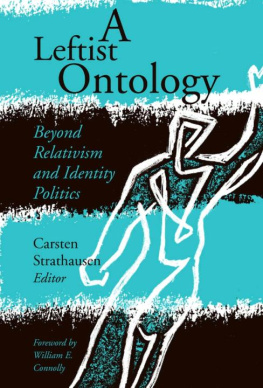About the Author
Richard Anderson-Connolly is professor of sociology and anthropology at the University of Puget Sound. His academic background includes the areas of economic sociology, power and inequality, criminology, and urban sociology. As a political activist, he works on reforming the U.S. electoral system through the adoption of proportional representation. He lives in Tacoma, Washington.
Chapter One
A Leftist Critique of Diversity as Justice
In this work I critique, from an unmistakably leftist perspective, the Identity, Diversity, and Multiculturalism Program (IDMP). In the introduction, we explored some of the displays of Identity, Diversity, and Multiculturalism in political and corporate contexts. We examined its intellectual foundation in the academy and found many illustrations of its four central tenets:
Diversity as Justice: The most important struggle for justice today is increasing the representation throughout society of individuals from historically marginalized groups by ending discrimination on the grounds of race, gender, sexual orientation, and similar characteristics;
Colorblindness as Racism: Race-neutral solutions to the problems caused by racism are harmful to blacks;
Race as Culture: Members of different races belong to different cultures;
Culture as Virtue: Cultures should be respected and celebrated.
In this chapter we consider the first of these tenets: Diversity as Justice. I claim that Diversity as Justice does not promote a leftist vision of justice but instead falls safely within the center of current political thinking. Many people, almost by definition, will fall in the center of any distribution, so this is not necessarily a criticism by itself. The critique has bite, however, because most supporters believe they bravely fight in the vanguard of a radical struggle against inequality, oppression, and all manner of right-wing injustice. What accounts for this perception? Much of the confusion among supporters, I allege, can be traced to improper conceptualization of some key terms. Some concepts are poorly defined and some perhaps not at all. This is a common occurrence, of course, in all matters discursive. Terms often have multiple meaningsa ubiquitous issue with languagebut the real problem is that many participants in the debate are not aware of the ambiguity and are often oblivious to the fact they are using the same word with different meanings. For example, I suspect that many supporters could not give an adequate definition of equal opportunity, one that did not loosely refer to racist discrimination, sexist discrimination, and the like. More surprisingly, given its importance for the IDMP, even racism is a vague and ambiguous term. People can be racist, and also laws, ideas, words, images, a hiring or admission decision, or even the entire economy or educational system. These might all be perfectly valid uses but we should recognize that they are qualitatively different and that an awareness of these differences might be necessary for a proper understanding of the problem at hand. Discrimination is obviously related to racism but it is not always clearly specified how. I believe that, in large part, the fuzziness in these terms encourages the false belief that ending racism, sexism, and the like would be tantamount to achieving equality of opportunity and even satisfying the demands of justice for the Left.
Leftists, too, can be guilty of imprecision. What is meant by the Left as a political and philosophical standpoint? Many people could readily place themselves on the political spectrum but I suspect most would be unable to define what is meant in the abstract by left or right (progressive or conservative in the contemporary vernacular). They could probably state their views on social issues like abortion or gay marriage and on some economic issues like minimum wage and healthcare. But when pressed to find some logic that might unify their positions on the various issues they will run into trouble. To some degree it seems likely that political identification is a matter of conforming to group normsfamily, friends, school, church, and so on.
But peer influence could not possibly account for all of it. It seems more plausible that there exists some intuitive understanding of our political moral philosophy. Our position on various issues will hang together for some reason, even if we cannot quite put it into words. For many purposes that moral intuition will suffice. Actions or outcomes that strike us as intuitively wrong would probably still do so even if we became aware of a deeper logic. For some problems, however, this imprecise expression of our values is not enough. Our intuition might fail us. It might be inconclusive or it might actually point in the wrong direction.
I suggest that this is true of Identity, Diversity, and Multiculturalism. By far the greatest portion of its supporters would identify as politically left or progressive. On college campuses, they might even say radical. The presumption that the Program expresses leftist values is, I claim, a failure of moral intuition. The social environment and media framing encourage this error. Progressives talk as if it were a force for social justice. The contrapositive is
In large part, therefore, the leftist critique of Diversity as Justice is a matter of proper conceptualization. Once we understand the meaning of the relevant termsracism, discrimination, and the leftist principles of justicethe incompatibility between the Left and the IDMP becomes quite clear. I turn first to a conceptualization of the Left. Definitions are merely agreements that words will stand for other words and thus can be neither objective nor permanent but communication would be impossible if words were free to flop around without any anchor. The contemporary meaning of leftist, while always in a process of evolution, is most certainly anchored in the thinking and politics of the Enlightenment. It is thus to a brief historical sidebar that we must first turn.
THE ENLIGHTENMENT ORIGINS OF THE MODERN LEFT
There is a hardly a single ideal of the left that does not derive from the Enlightenment, writes Stephen Eric Bronner (2004, 60), a leading scholar of that historical period. Although the genealogy of the Left is perhaps not strictly necessary for a leftist critique of Identity, Diversity, and Multiculturalism today, as with many social ideas and institutions, the parallels with the past enrich our understanding of the present. Originally designating a physical, spatial relationship, the current usage of the word left in a philosophical and political sense comes to us from the French Revolution, certainly the most dramatic event of the Enlightenment. Those who favored a republic quite literally sat on the left side of the president in the National Assembly and later in the Legislative Assembly.
Like all such historical designationsHellenistic Greece, the Roman Empire, the Middle Ages, the Renaissancethe boundaries of the Enlightenment are fuzzy. We never find a complete social revolution where previous ideas and institutions are fully obliterated. Furthermore, however strong the break with the past might have been, every era has its own diversity of thought and practice such that any attempt to summarize must necessarily oversimplify. As in biology, we cannot point to a single mutation as the moment of speciation yet, looking back over time, we can say that, at some point, the dog is no longer a wolf. Historians can continue to debate when and even what the Enlightenment was but I take the beginning of the era to be the philosophy of Rene Descartes in the middle of the seventeenth century and the ending to be the works of Kant, who popularized the German term


